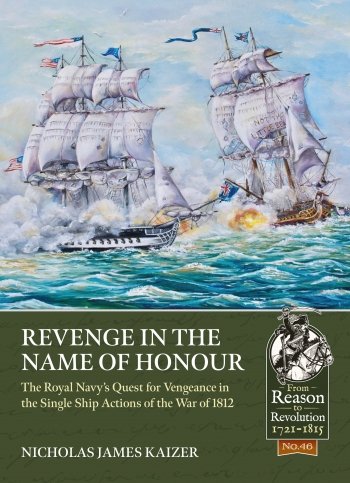-
Załączniki bezpieczeństwa
Załczniki do produktuZałączniki dotyczące bezpieczeństwa produktu zawierają informacje o opakowaniu produktu i mogą dostarczać kluczowych informacji dotyczących bezpieczeństwa konkretnego produktu
-
Informacje o producencie
Informacje o producencieInformacje dotyczące produktu obejmują adres i powiązane dane producenta produktu.HELION
-
Osoba odpowiedzialna w UE
Osoba odpowiedzialna w UEPodmiot gospodarczy z siedzibą w UE zapewniający zgodność produktu z wymaganymi przepisami.
On 19 August 1812, lookouts of the British frigate HMS Guerriere spotted the American frigate, USS Constitution. Captain James Dacres, Guerriere’s commander, was eager for a fight and confident of victory. He had the weight of Britain’s naval reputation and confidence behind him. Yet when the guns fell silent Guerriere was a shattered hulk and Dacres had struck to Constitution. By the year’s end, three British frigates and two sloops had been defeated in single ship actions against American opponents, throwing the British naval sphere into a crisis. These losses could not have been more shocking to the Royal Navy and the British world. In a strange reversal, the outnumbered British Army along the Canadian border had triumphed but the tiny United States Navy had humiliated the world’s largest and most prestigious navy. Further dramatic sea battles between the two powers followed into early 1815, and the British tried to reconcile the perceived stain to the Royal Navy’s honour. Many within and outside of the Royal Navy called for vindication. The single ship actions of the War of 1812 have frequently been dismissed by historians of the war, or of naval history in general. The fights of late 1813 and 1814 are often omitted from works of history altogether, as many (correctly) argue that they had no strategic impact on the wider course of the war. Yet to contemporaries, naval and civilian alike, these single ship actions could not have been more important. This volume explores the single ship naval actions during the War of 1812: how they were fought, their strategic context, and their impact on the officers and men who fought them, and the wider British psyche. Trafalgar happened only seven years earlier, and the fighting ethos of the Royal Navy was still hardened by Nelsonic naval culture. Whereas contemporary civilians and modern historians understood the losses as the inevitable result of fighting the vastly superior American ‘super’ frigates, the officers of the navy struggled to accept that they could not cope with the new American warships. The losses precipitated changes to Admiralty policy and drove an urge for vengeance by the officers of the Royal Navy. This volume explores the drama and impact of the British single ship losses and victories to examine Britain’s naval experience in the moments that captivated the British and American world in the last Anglo-American War.








